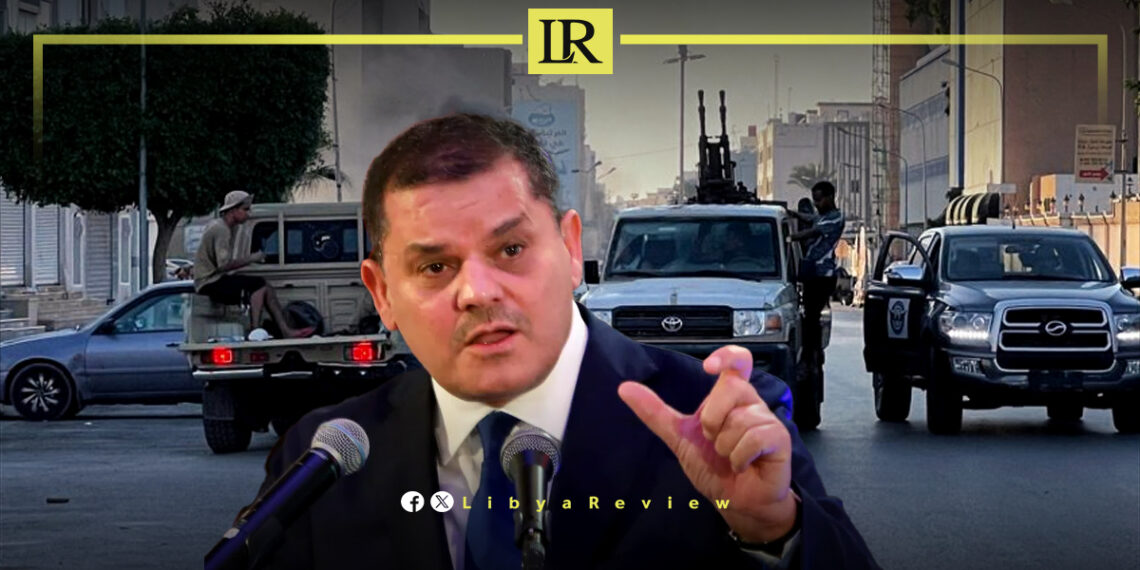Tensions in Tripoli are rising sharply amid reports of military mobilizations and growing warnings from tribal leaders, social councils, military commanders, parliamentarians, and international actors that the capital may be pushed into a new round of armed conflict.
The Social Council of Souq Al-Jumaa, one of Tripoli’s most influential community bodies, strongly rejected claims that it had aligned itself with Prime Minister Abdulhamid Dbaiba.
It described such reports as “misleading leaks” and emphasized that “land, honor, and livelihoods” are untouchable. The council accused Dbaiba of trying to impose control by bringing in militias from outside the capital, framing the crisis as an attempt to loot resources and settle political disputes by force.
The tension deepened when reports emerged that around 50 armed vehicles withdrew from Al-Qarabulli and returned to Misrata after disputes over payments. Fighters reportedly objected to unequal daily allowances, with some groups receiving 5,000 dinars per fighter and others only 2,000, highlighting the fragile alliances underpinning Dbaiba’s security network.
Community leaders across western Libya gathered outside the UN mission in Janzour to denounce any attempt to drag the capital into war. They accused the government of mobilizing militias to destabilize Tripoli and urged international powers to hold those responsible accountable. Youth groups also warned that Tripoli residents would resist any foreign forces entering the city.
Military commanders echoed these warnings. Osama Juweili, commander of the Western military zone, said renewed fighting would sabotage the UN-backed political process. Muammar Al-Dhawi of the 55th Battalion warned of foreign mercenaries exploiting the turmoil.
Parliamentarians voiced similar concerns. MP Ali Bouzreba cautioned that “Tripoli is not weak ground to be conquered,” while MP Ali Al-Tekbali accused Dbaiba of seeking to eliminate the Special Deterrence Force, predicting any confrontation would be fierce.
International actors have also expressed alarm. The EU mission in Libya said it was “deeply concerned” and urged all parties to withdraw armed convoys from civilian areas and return to dialogue. Observers believe Dbaiba’s actions may be aimed at projecting power ahead of political negotiations, but warn they risk dragging Tripoli back into destructive conflict.


